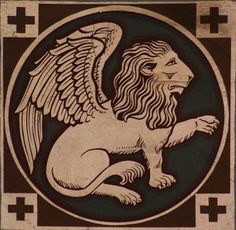9 January OS 2016 – Afterfeast of Theophany; Holy Martyr Polyeuctus
The reading from the Gospel today is Mark 1: 9-15.
And it came to pass in those days, that Jesus came from Nazareth of Galilee, and was baptized of John in Jordan. And straightway coming up out of the water, he saw the heavens opened, and the Spirit like a dove descending upon him: And there came a voice from heaven, saying, Thou art my beloved Son, in whom I am well pleased. And immediately the Spirit driveth him into the wilderness. And he was there in the wilderness forty days, tempted of Satan; and was with the wild beasts; and the angels ministered unto him. Now after that John was put in prison, Jesus came into Galilee, preaching the gospel of the kingdom of God, And saying, The time is fulfilled, and the kingdom of God is at hand: repent ye, and believe the gospel.
The Gospel according to St. Mark is the shortest of the four Gospels – only sixteen short chapters, compared to St. Matthew with 28 chapters, St. Luke with 24 chapters (the longest Gospel, for his chapters are longer than St. Matthew’s), and St. John with 21 chapters. Its great power lies in plainly reporting the Savior’s mighty deeds. This Evangelist records few of the Lord’s teachings; Mark is an “action story” – this happens, that happens, this happens, that happens – and this is what it means. Accept it or not: which do you choose?
Blessed Theophylact states, in the introduction to his commentary on St. Mark, that the Evangelist wrote his Gospel at Rome, in direct response to the local Christians’ begging him to put his preaching down on paper. He writes fittingly for an audience of these old West Romans, a plainspoken folk of few words but many deeds.
This directness is plain from the beginning of Mark, which starts not with historical context or genealogy (Matthew and Luke) or a profound theological meditation (John), but with these simple words: The beginning of the Gospel of Jesus Christ the Son of God. St. Mark goes on immediately to introduce St. John the Baptist and his ministry, and then, at verse nine of chapter one, he is ready to present the Lord Himself as a full-grown man coming to be baptized.
In seven short verses, today’s reading proclaims great mysteries.
Here is a short list:
Christ appearing straight off as a full-grown man is revealed as the Perfect Man, the New Adam.
Christ is baptized, thus fulfilling the righteousness of the Old Law, which sinful man could not fulfill, and inaugurating the Baptism of the New Law, which is not a foreshadowing of but the very reality of salvation.
All the waters of the world, spoken of as the primordial element of life in the very first verses of Scripture, are sanctified and made the element not only of earthly life but also of eternal life.
The Mystery of the Holy Trinity is plainly manifest: The Father speaks from heaven, the Son is seen in the Jordan, and the Spirit descends in the form of a dove.
The Lord overcomes Satan in the wilderness, thus reversing man’s relationship with demons: now man, in the Person of Christ, has power over the devil, whereas before the devil dominated man.
The Lord lives with the wild beasts in the desert and comes to no harm, thus reversing man’s alienation from the creation, caused by sin. He is the New Adam in the new Paradise of the Kingdom of God.
The angels minister to the Lord, revealing both that He is their God, the King of the Angels, and that as the ultimate and perfect representative of the human race, He has placed Man where God always intended him to be, among the heavenly hosts as the replacement for the fallen angels.
John Baptist ends his ministry by a martyric contest unto death, thus crowning the entire history of the Old Testament with his witness to Christ. The ministry of the New Testament begins.
The Lord announces that history, as man has known it for 5,000 years, is over: “The time is fulfilled, and the Kingdom of God is at hand.” With the coming of Christ, God’s Kingdom has broken into time, and from now on God the King will be gathering His own into the eternal Kingdom and casting those Who reject Him into the eternal fire. From now on, everything men say or do till the end of the world will be a response to the Main Event of All Time, which is in essence also the End of Time, which has happened already and is continuing to happen before their eyes. (In other words, for the past 2,000 years, we have been living between Act I and Act II of the End of the World – this puts Christian history into its real perspective).
Having announced the End of All Things, the Lord demands the only sane response to such an announcement: “…repent ye, and believe in the Gospel.” In other words, “This is it. This is what you have been waiting for. Deal with it.”
Are we with Him or against Him?

